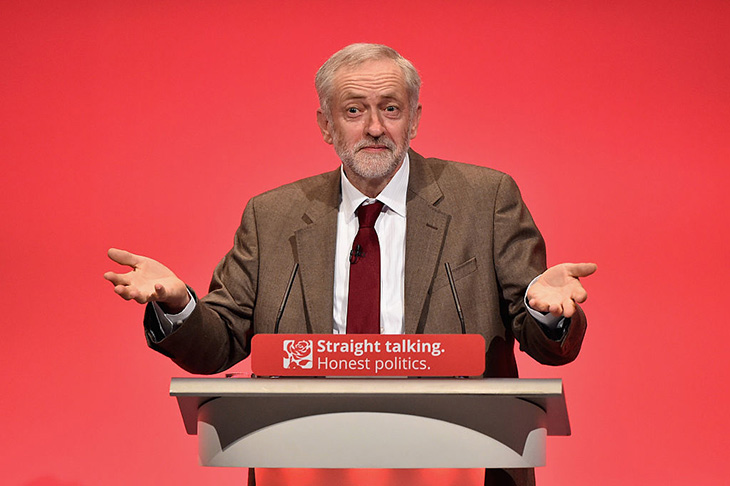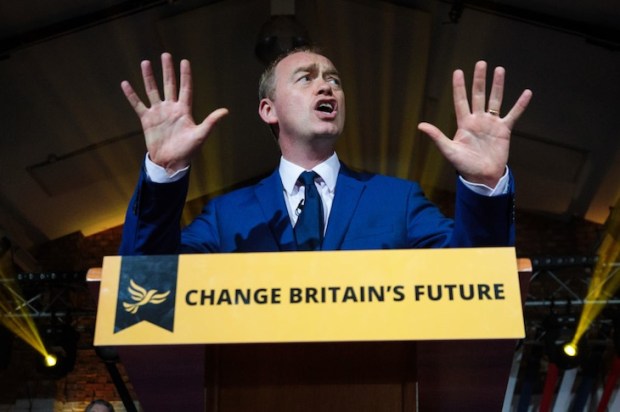General elections are meant to produce a government and an opposition — ideally, a decent version of both. It is obvious what government this election will deliver: a Tory one with an increased majority. That, after all, is one of the reasons why Theresa May has decided to go to the country three years early. But it is not clear what opposition there will be.
What passes for optimism in moderate Labour circles these days is the belief that a shellacking in this election will lead to Jeremy Corbyn’s departure, as the party’s membership sobers up and elects a new and sensible leader. But it is far from certain that this will happen. The eagerness of the Corbynites to get their people parachuted into safe seats suggests that they are still more interested in capturing the Labour Party than winning power. They aren’t planning on going away anytime soon.
James Forsyth and Isabel Hardman look at the opposition beyond the election:
If the hard left can get a few more MPs into parliament, they’ll have the numbers to get one of their own on to the leadership ballot should Corbyn stand down. With the membership swollen by the two Corbynista surges, it is entirely possible that their candidate could win. This would mean a continuation of the current situation where the ideological gap between leader and parliamentary party is simply too large to permit effective opposition.
Let’s say that the moderates’ fantasy comes true, that Corbyn resigns and the far left loses a subsequent leadership battle. Labour then would have a chance to become a serious party of opposition again — but it would only be the start of a journey.
First, Labour is not overburdened with talented candidates for its top job. Yvette Cooper is the hope of most moderate Labour MPs. But it is worth remembering that in the 2015 leadership election she finished third behind Corbyn and Andy Burnham — so she might not be the saviour that some on the Labour side imagine her to be. Her failure to land any blows on Theresa May in four years shadowing her at the Home Office should also give Labour MPs pause before rushing to her banner.
Even if Labour managed to find the people, it would still struggle with ideas. What, for example, is Labour for in an era when money is tight and globalisation constrains government’s abilities to raise taxes? And as Alex Massie notes on page 12, the currents of British life and politics have shifted in ways that make it much harder for Labour to win a majority. The 2014 referendum shattered its hold on Scotland; the Brexit referendum seems to have finished its reign in Wales, too. Worse, the traditional Labour electoral coalition seems to be falling apart. The interests of metropolitan liberals and of the industrial working class are diverging, perhaps irreconcilably. Tellingly, in the EU referendum, Hampstead and Hull voted in very different ways.
Even a politician as skilled as Tony Blair at his peak would struggle to deal with the problems that Labour is now facing. Perhaps the most depressing thing for the party about the departure of bright MPs such as Tristram Hunt is that they are leaving because they don’t think its problems have a solution.
Labour’s troubles should open the door to other parties. So far, however, no nationwide challenger is emerging. At the start of this campaign, the sense was that the Liberal Democrats would have a good election. With their clear position on Brexit, they have a great opportunity to pitch themselves to the 48 per cent who voted Remain less than a year ago. But so far, the Lib Dem campaign has been a fiasco. Tim Farron, their leader, became caught up in an unnecessarily protracted discussion on the morality of gay sex. And the party managed, albeit briefly, to select a candidate whom Farron had previously criticised for anti-Semitic statements. The upshot of all this is that polls suggest people are now less likely to vote Liberal Democrat than they were at the start of the campaign.
Given their low starting base (they were reduced to eight MPs in 2015) they are almost certain to make some progress. But there is now a sense that this election could turn into another 2005 for them — a unique opportunity that they fail to grasp. Back then the unpopularity of the Iraq War — which they had opposed — offered them a chance to break through. But a poor campaign resulted in a gain of just 11 seats.
So what will fill the vacuum where the opposition should be? Some on the Remain side think the European Union might be up to this job. The glee with which the Commission’s unflattering leak about Jean-Claude Juncker’s Downing Street dinner with May was seized on was revealing. But the immediate result of this briefing has been to strengthen May’s position at home. The Tories believe their strongest card in this election is to ask voters who would be best at negotiating with Brussels: May or Corbyn? By highlighting how difficult the Brexit talks will be, the Commission has played into the Tories’ hands. Just look at May’s boasts of how Juncker is now discovering (as she famously promised he would) that she is a ‘bloody difficult woman’.
Normally in these circumstances, an internal opposition to the Prime Minister would emerge. But there is no Gordon Brown-style figure in May’s cabinet, no alternative centre of power. There are, to be sure, Tories uneasy with the more economically interventionist direction she is keen to take the party in but they are not organised. And even if they were to become so, the likely size of May’s post-election majority would absorb any trouble.
Some thought that, given the lack of opposition, the Tories would become ill-disciplined. But that has not proved to be the case so far. Even May’s critics in the party seemed awed by her popularity in this campaign. The result is a centre-right party rallying behind its most left-wing leader for a generation. The pragmatic Tory instinct for power is holding the party together and will do so long as no credible opposition to Mrs May exists.
Got something to add? Join the discussion and comment below.
Get 10 issues for just $10
Subscribe to The Spectator Australia today for the next 10 magazine issues, plus full online access, for just $10.
You might disagree with half of it, but you’ll enjoy reading all of it. Try your first month for free, then just $2 a week for the remainder of your first year.















Comments
Don't miss out
Join the conversation with other Spectator Australia readers. Subscribe to leave a comment.
SUBSCRIBEAlready a subscriber? Log in